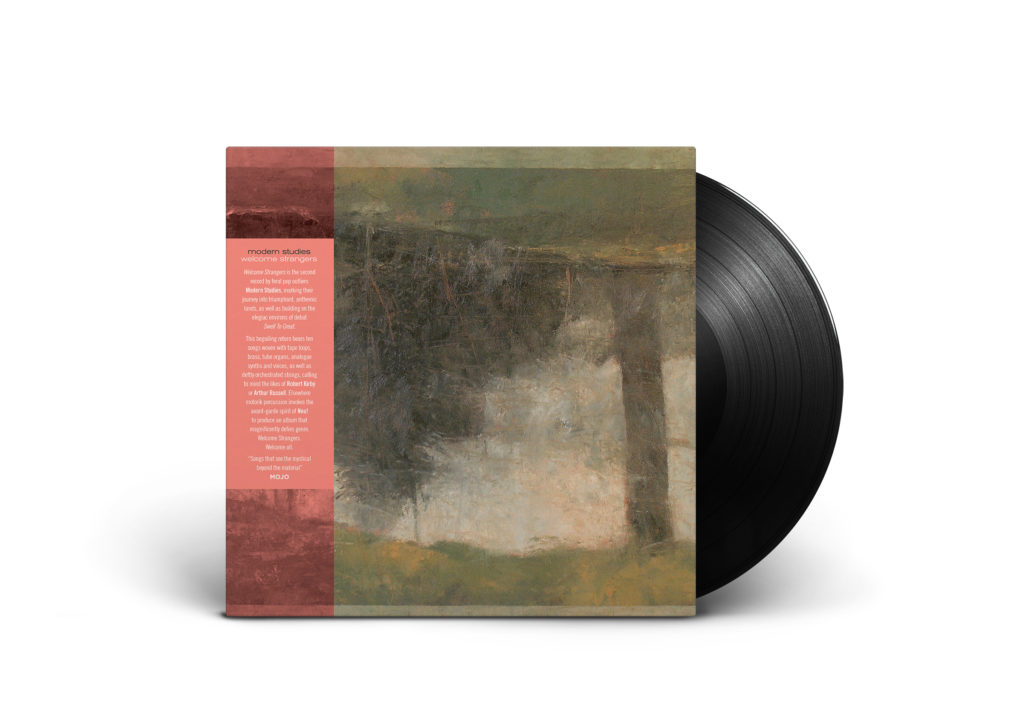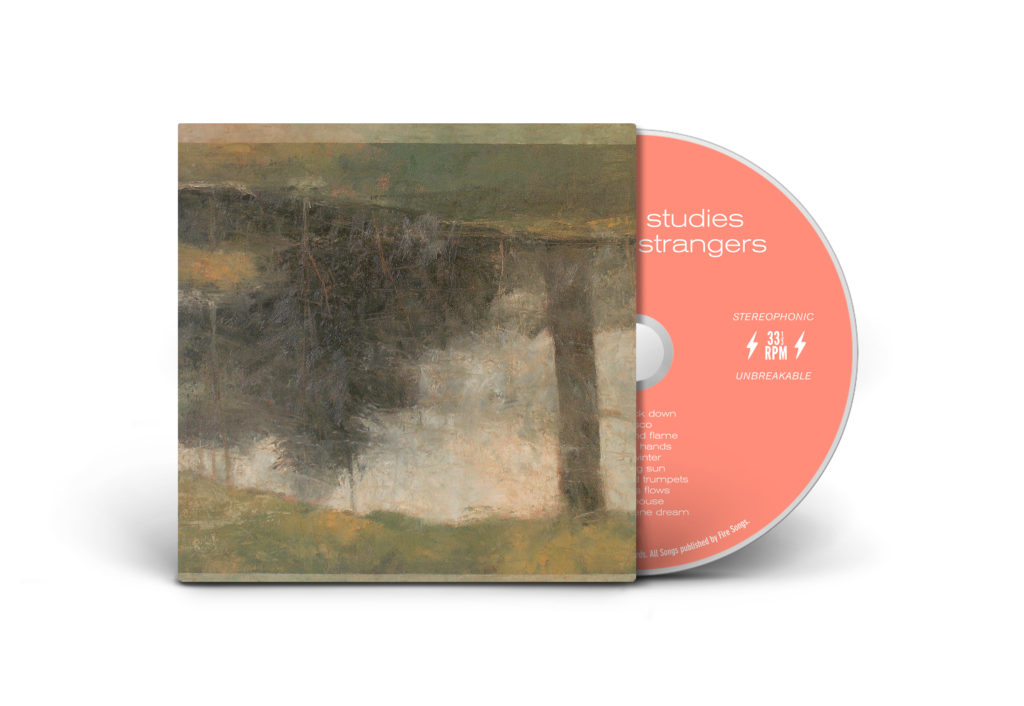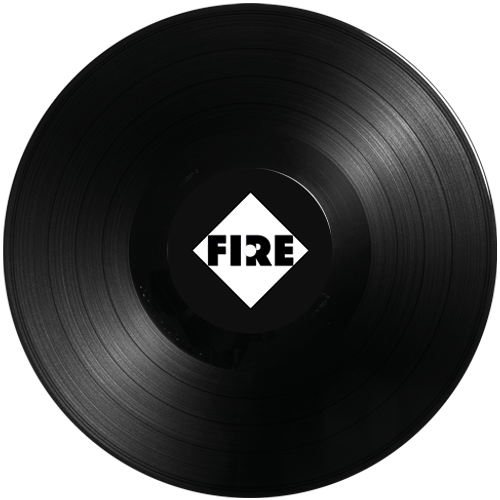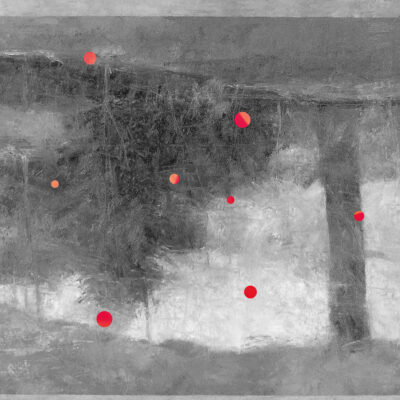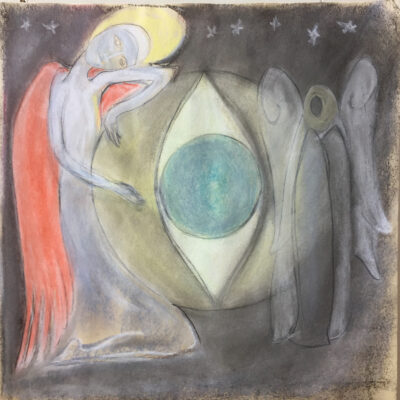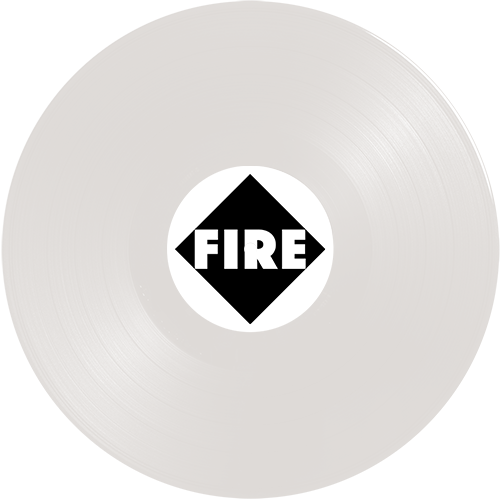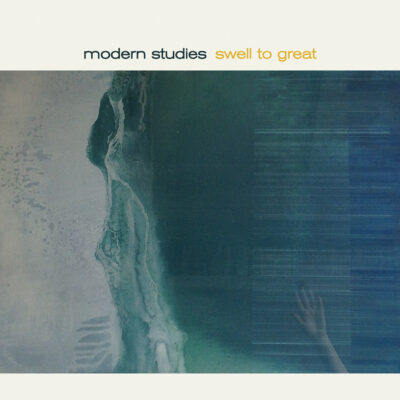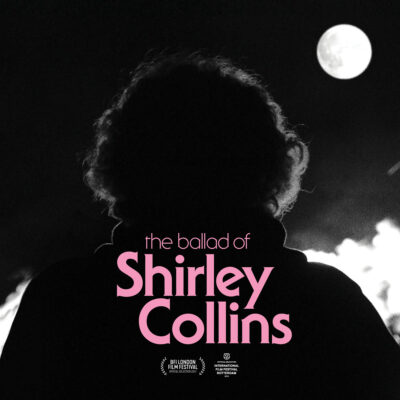Welcome Strangers
Modern Studies
An album of modernist pop weirdness for the 21st century, a bricolage where classicism meets experimentalism and repeated listening unearths new stories for this contemporary age.
- Gatefold sleeve, includes 2-sided insert and Obi strip
- CD
£12.00 – £22.00
“Songs that see the mystical beyond the material” MOJO
‘Welcome Strangers’ is the second record by feral pop outliers Modern Studies. Elegiac and haunted, life-giving and triumphant, this beguiling return digs deep into landscapes both real and imagined, internal and external, in a work that might perhaps best be described as “kosmiche choral” or, if we’re pushing it “arts-und-crafts-werk”. Or, put simply, glorious pop music.
It is an elemental and often spectral world of contrasting tones and hues that is found within ‘Welcome Strangers’, one whose lyrical vocabulary is of loss, light, air, sun, growth; of spires, seeds and phosphene dreams. Here is the Britain of visionaries such as Kate Bush, Broadcast or PJ Harvey, a nation of dark magic, conflict, celebration and confusion, all at the same time.
Witness the incandescent chamber-pop of ‘Get Back Down’: underpinned by complex jazz rhythms, and string and brass flourishes, it manages to be both understated and epic as it explores a similar sonic terrain to Wild Beasts. Or there’s ‘Horns And Trumpets’, a haunting musical perambulation that burrows deep into Britain, a warm-hued hymn for future generations, and ‘Let Idle Hands’, which abandons restraint halfway through and, in a moment of musical epiphany, runs joyously to the horizon. Meanwhile on ‘Phosphene Dream’ the honeyed harmonies of Emily Scott and Rob St. John wrap themselves around each other like Nancy Sinatra and Lee Hazelwood had they holidayed in draughty Glasgow tenements. Or perhaps – as on ‘Disco’ – they come closer to Kylie and Nick Cave.
“It’s an ever changing thing – an organism,” explains principle songwriter Emily of Modern Studies’ collaborative creative process, “there is space for each of the band to experiment.” Shared band listening habits include Yamasuki, Van Dyke Parks, Laurie Anderson, Philip Glass, Matthew E White, Basil Kirchin, and Nanci Griffith.
Working at Pete’s Pumpkinfield studio in rural Perthshire through 2017, the band used a Creative Scotland grant to hire a chamber orchestra and a remote village hall to record them in. Contributors include sisters, wives, toddlers, freeform saxophonists and The Pumpkinseeds, an ensemble featuring violins, violas, cellos, trombones and vocals, brought together to play Pete and Emily’s collaborative string, brass and vocal arrangements. Truly, a family affair.
As well as further fleshing out the sound with analogue synths, tube organs, drum machines and mellotrons, some inventive techniques were deployed – a decayed tape loop of Emily’s vocals used to create the stuttering rhythm in Mud and Flame for example, or prepared guitars recurring as percussion and drones.
Now they proudly present ‘Welcome Strangers’, an album of modernist pop weirdness for the 21st century, a bricolage where classicism meets experimentalism and repeated listening unearths new stories for this contemporary age. More elaborate and expansive than its predecessor, this is music as cartography, Modern Studies mapping their own multi-dimensional internal world.
‘Welcome Strangers’. Welcome all.
Modern Studies are: Emily Scott (vocals, organs, piano, double bass). Rob St. John (vocals, guitars, synths, harmonium, tape loops). Pete Harvey (cello, bass, piano). Joe Smillie (drums, mellotron, vocals).
Tracklist
2. Disco
3. Mud And Flame
4. Let Idle Hands
5. It's Winter
6. Young Sun
7. Horns And Trumpets
8. Fast As Flows
9. The House
10. Phosphene Dream
Description
“Songs that see the mystical beyond the material” MOJO
‘Welcome Strangers’ is the second record by feral pop outliers Modern Studies. Elegiac and haunted, life-giving and triumphant, this beguiling return digs deep into landscapes both real and imagined, internal and external, in a work that might perhaps best be described as “kosmiche choral” or, if we’re pushing it “arts-und-crafts-werk”. Or, put simply, glorious pop music.
It is an elemental and often spectral world of contrasting tones and hues that is found within ‘Welcome Strangers’, one whose lyrical vocabulary is of loss, light, air, sun, growth; of spires, seeds and phosphene dreams. Here is the Britain of visionaries such as Kate Bush, Broadcast or PJ Harvey, a nation of dark magic, conflict, celebration and confusion, all at the same time.
Witness the incandescent chamber-pop of ‘Get Back Down’: underpinned by complex jazz rhythms, and string and brass flourishes, it manages to be both understated and epic as it explores a similar sonic terrain to Wild Beasts. Or there’s ‘Horns And Trumpets’, a haunting musical perambulation that burrows deep into Britain, a warm-hued hymn for future generations, and ‘Let Idle Hands’, which abandons restraint halfway through and, in a moment of musical epiphany, runs joyously to the horizon. Meanwhile on ‘Phosphene Dream’ the honeyed harmonies of Emily Scott and Rob St. John wrap themselves around each other like Nancy Sinatra and Lee Hazelwood had they holidayed in draughty Glasgow tenements. Or perhaps – as on ‘Disco’ – they come closer to Kylie and Nick Cave.
“It’s an ever changing thing – an organism,” explains principle songwriter Emily of Modern Studies’ collaborative creative process, “there is space for each of the band to experiment.” Shared band listening habits include Yamasuki, Van Dyke Parks, Laurie Anderson, Philip Glass, Matthew E White, Basil Kirchin, and Nanci Griffith.
Working at Pete’s Pumpkinfield studio in rural Perthshire through 2017, the band used a Creative Scotland grant to hire a chamber orchestra and a remote village hall to record them in. Contributors include sisters, wives, toddlers, freeform saxophonists and The Pumpkinseeds, an ensemble featuring violins, violas, cellos, trombones and vocals, brought together to play Pete and Emily’s collaborative string, brass and vocal arrangements. Truly, a family affair.
As well as further fleshing out the sound with analogue synths, tube organs, drum machines and mellotrons, some inventive techniques were deployed – a decayed tape loop of Emily’s vocals used to create the stuttering rhythm in Mud and Flame for example, or prepared guitars recurring as percussion and drones.
Now they proudly present ‘Welcome Strangers’, an album of modernist pop weirdness for the 21st century, a bricolage where classicism meets experimentalism and repeated listening unearths new stories for this contemporary age. More elaborate and expansive than its predecessor, this is music as cartography, Modern Studies mapping their own multi-dimensional internal world.
‘Welcome Strangers’. Welcome all.
Modern Studies are: Emily Scott (vocals, organs, piano, double bass). Rob St. John (vocals, guitars, synths, harmonium, tape loops). Pete Harvey (cello, bass, piano). Joe Smillie (drums, mellotron, vocals).
